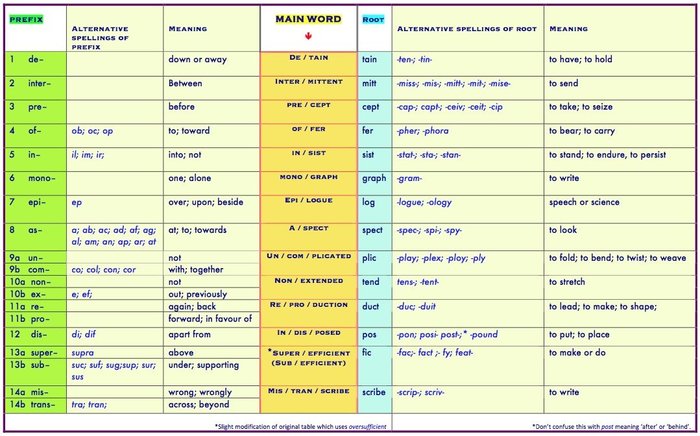深めて!南山GLS イベントレポート・コラム GLS教員リレーエッセイ
第15回 教員リレーエッセイ Gabriel Yardley先生
2022.07.15
14 × 1 = 14,000? Getting to the Root of English Comprehension
Gabriel Yardley
As you will no doubt know, many words used in the English language today are not originally 'English'. They came into English from other languages, and a significant number of these have Latin or Greek origins especially those relating to academic English. In everyday English conversation we tend to use many words of Anglo-Saxon origin. However, a more literate or academic use of English, particularly that required for academic study, requires a more extensive vocabulary of words with Latinate or Greek origins -this is particularly true in science-related vocabulary, much of which is of Greek origin. According to some sources, less than twenty percent of our vocabulary is Anglo-Saxon in origin, while approximately sixty-five percent is from Latin and Greek.
It is very useful and often interesting to see how certain words can be broken down into a number of prefixes and roots, all of which have a particular meaning. If you study the original meanings associated with a set of particular word roots, you will see that many of them are often closely connected with the connotations and meanings of the modern English words they play a part in forming. Most importantly, a basic knowledge of these roots will help you improve your academic vocabulary and reading comprehension skills! For example, if you know the meaning of the Latin root, ann- (year), or its variant enn, it will help you approximate the meaning of a word containing this root -what could 'biennial' mean, for example? You already know!
Furthermore, before you look in your dictionary, you will already know that many words beginning with cent- have something to do with the Latin-derived word for 'hundred', and that words beginning with bene- will have a positive nuance (from the Latin for 'good'), while those beginning with mal- will have a negative connotation (from the Latin for 'bad'). However, what about the word 'fortitude'; what might this mean? You may not realize it, but you may well be able to guess what it means! Just think critically about the root fort(i)-!
In 1971, James I. Brown, a former Professor of Rhetoric at the University of Minnesota published the following list of 14 'special' words:
*This is a replacement of another item on the original list
These 14 (Only 14!) words are 'special' because when you break them down into their roots and other particles such as prefixes they incorporate what Professor Brown considers are:
- i)_________the 20 most useful prefixes; and
- ii)_________the 14 most important word roots.
These words are special and useful because they can be found as the main elements in over 14,000 words that US college students would expect to find in a dictionary. They also feature in more than 100,000 words in a graduate's dictionary! If you look at the list below, you can see how each word is broken down. Try to review this list once a day until you can remember all the parts of each 'main word' collated below!
It is useful to be familiar with the more common prefixes roots of words derived from Latin or Greek, not least when preparing for a TOEFL exam or other language exam in preparation for academic studies in an international context. As mentioned earlier, being able to draw on knowledge of these roots when reading academic English, it may be possible to deduce the approximate meaning of a word you have never seen before if you know the meaning of its root or prefix. As an added bonus, if you are studying other European languages, especially a so-called "Romance" language such as Spanish, Italian, Portuguese or French, then you will find that most of the Latin- and Greek-derived word roots have related meanings and, often, similar forms in these languages too.
Remember that the words global, liberal and study are all derived from Latin (globus, liberalis and studium), and translate recognizably into Spanish (global, estudio, liberal), Portuguese (global, estudo, liberal), French (globale, étude, libérale) and Italian (globale, studio, liberale).
I would therefore like to encourage you to improve your knowledge of prefixes and of Greek or Latinate word roots in particular, as a good understanding of these will enhance your academic vocabulary and reading skills. The word roots and prefixes reviewed here briefly will also complement your acquisition of the all-important items in the New Academic Word List. Links to this and other useful websites can be accessed by scanning the QR codes below, but even if you do not visit any of these websites, do at least remember that 14 × 1 = 14,000; that these 14 words, on 1 list could enhance your acquisition of over 14,000 words! In the meantime, while not exactly a Latin 諺, it is always useful to follow this good advice: Semper ubi, sub ubi!
Resources
Online Etymology Dictionary https://www.etymonline.com/
List of Greek and Latin roots in English https://www.oakton.edu/user/3/gherrera/
Greek%20and%20Latin%20Roots%20in%20English/
greek_and_latin_roots.pdf
New General Service List Project http://www.newgeneralservicelist.org/nawl-new-academic-word-list
This website announces itself as The most important words for second language learners of English
It notes that the latest or New Academic Word List (NAWL) was developed by Dr. Charles Browne, Dr. Brent Culligan
and Joseph Phillips (2013), to work in conjunction with the NGSL in the same way that Averil Coxhead's excellent original
Academic Word List (AWL) worked in conjunction with the original GSL. The NAWL is based on a carefully selected
academic corpus or dataset of 288 million words.
Academic vocabulary https://www.eapfoundation.com/vocab/academic/






